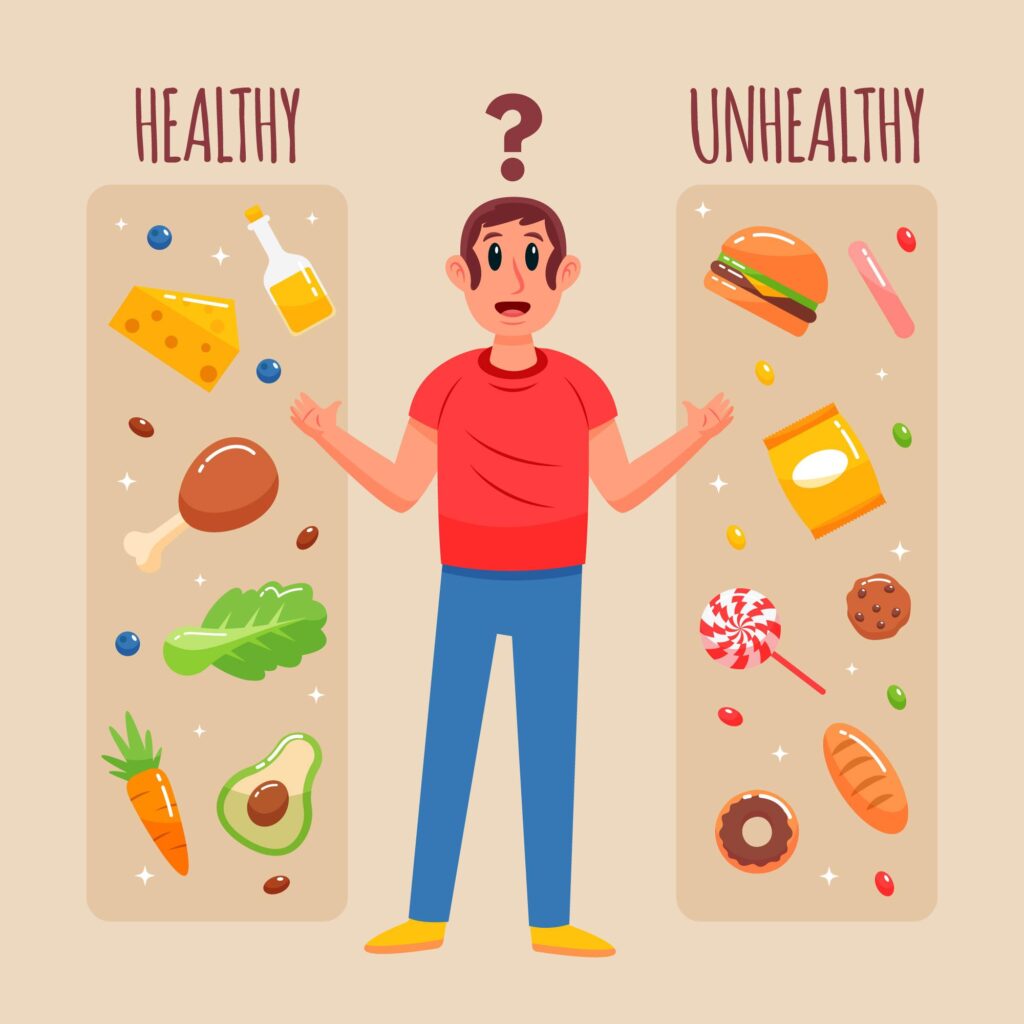In today’s fast-paced society, the term “diet” is frequently used, mainly to refer to weight loss trends or stringent eating regimes. However, diet is much more than a quick fix; it is the cornerstone of our daily lives. A well-balanced diet is essential for nourishing our bodies, maintaining physical and mental health, and improving our overall well-being.
Understanding what diet really means and how it affects us on a daily basis might help us change our focus away from quick cures and toward long-term health. In this blog, we’ll look at the significance of a well-balanced diet in terms of energy maintenance, disease prevention, and overall well-being.
Understanding Diet: What It Is and Why It Matter

When we talk about “diet,” many people immediately think of weight loss plans or restrictions on eating. However, the term “diet” simply refers to the food and drink we regularly consume. It encompasses the total nutritional intake necessary to maintain our health and well-being. Whether your goal is to lose weight, gain muscle, or just maintain overall health, diet plays a critical role in achieving those objectives.
What is diet?
Diet refers to the types and amounts of food and beverages consumed on a regular basis. It’s a broad term that differs from person to person, depending on lifestyle, cultural preferences, nutritional requirements, and aspirations. There are numerous types of diets, ranging from vegan and vegetarian to high-protein or low-carb, but all have the same goal: to give the body the nutrition it requires to function normally.
A well-balanced diet usually includes:
- Proteins are necessary for muscle repair and growth, as well as enzymes and hormones
- Carbohydrates are the body’s principal energy source.
- Fats are essential for brain function, cell health, and energy storage.
- Vitamins and minerals: These nutrients aid in biological activities such as metabolism, immunity, and bone health.
- Water is essential for digestion, temperature regulation, and staying hydrated.
Why is diet important?
- Energy and Vitality: Our bodies transform food into energy. Feeding your body nutrient-dense foods will provide you with the energy you need to be active, think clearly, and keep your organs functioning properly. In contrast, a nutrient-deficient diet might make you feel sluggish, weary, and more prone to sickness.
- Supports overall health: A well-balanced diet can help avoid a variety of disorders. It lowers the risk of chronic illnesses like obesity, heart disease, diabetes, and several malignancies. A diet high in fruits, vegetables, and whole grains, for example, has been related to improved heart health and immune system function.
- Diet has an important role in weight management. Consuming the appropriate number of calories and macronutrients (proteins, carbohydrates, and fats) in relation to your activity level will help you maintain a healthy weight.
- This process relies heavily on proper portion management and dietary balance. Mental Health: Your eating habits can have an impact on your mental health.
- A diet high in omega-3 fatty acids, antioxidants, and vitamins can boost brain function and alleviate symptoms of depression and anxiety.
- In contrast, diets consisting of processed foods, sweets, and unhealthy fats are frequently associated with poor mood and cognitive performance.
- Improves Physical Performance: Athletes and fitness enthusiasts recognize the importance of food in maximizing physical performance.
- Proper diet can help fuel exercises, aid in muscle recovery, and improve endurance. Even if you’re not an athlete, a well-balanced diet can boost your physical ability and stamina for regular work.
The Role of Diet in Day-to-Day Life
Boosts Immunity: A vitamin, mineral, and antioxidant-rich diet strengthens the immune system, allowing the body to fight off infections and illnesses more effectively.
- Improves Focus and Productivity: Eating a nutritious breakfast and staying hydrated throughout the day will help you concentrate, focus, and be more productive at work or school.
- Encourages Healthy Aging: As we age, our dietary requirements shift. A nutrient-dense diet can promote healthy aging by maintaining muscular mass, bone density, and cognitive function.
- Promotes emotional well-being: What we consume directly affects our mood. Nutritional deficiencies, such as a lack of B vitamins, omega-3 fatty acids, or magnesium, can cause emotional instability, irritability, and melancholy.
Conclusion
Diet is more than just eating less or avoiding specific foods; it is about supplying your body with the nutrients it requires to thrive. The appropriate balance of nutrients gives us the energy we need to live our lives fully, avoids sickness, and helps us reach our physical and mental goals. Making conscious dietary choices can help you enhance your quality of life now and in the future.
Remember that a good diet is one that is sustainable and adapted to your own lifestyle, interests, and nutritional requirements.
